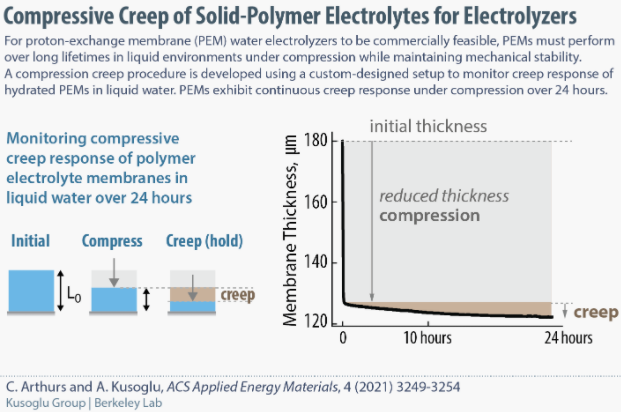
 Proton-exchange membrane (PEM) water electrolyzers (PEMWEs) are a promising energy technology for electrochemical generation of low-cost, clean hydrogen by splitting water using renewable electricity. The goal is to produce affordable electrolytic hydrogen without sacrificing durability or efficiency.
Proton-exchange membrane (PEM) water electrolyzers (PEMWEs) are a promising energy technology for electrochemical generation of low-cost, clean hydrogen by splitting water using renewable electricity. The goal is to produce affordable electrolytic hydrogen without sacrificing durability or efficiency.
This project with Kusoglu group focuses on enhancing the durability of electrolyzer membranes by providing a scientific understanding of the underlying factors controlling membrane stability during device operation. For electrolyzers to be commercially feasible, PEMs must perform over long lifetimes in liquid environments under compression while maintaining mechanical stability.
PEMWEs use a solid-electrolyte polymers membrane as the separator which functions in a hydrated environment. Such a hydrated environment, while inherent for operation and proton conductivity, undermines PEM stability. This work aims to develop new testing procedures using custom-designed setups to monitor the time-dependent response of hydrated PEMs. Our recent results show that PEMs exhibit creep under compression, with a dependence on the pressure and hydration, which signifies to the importance of mechanical characterization under stressors relevant to device operation.